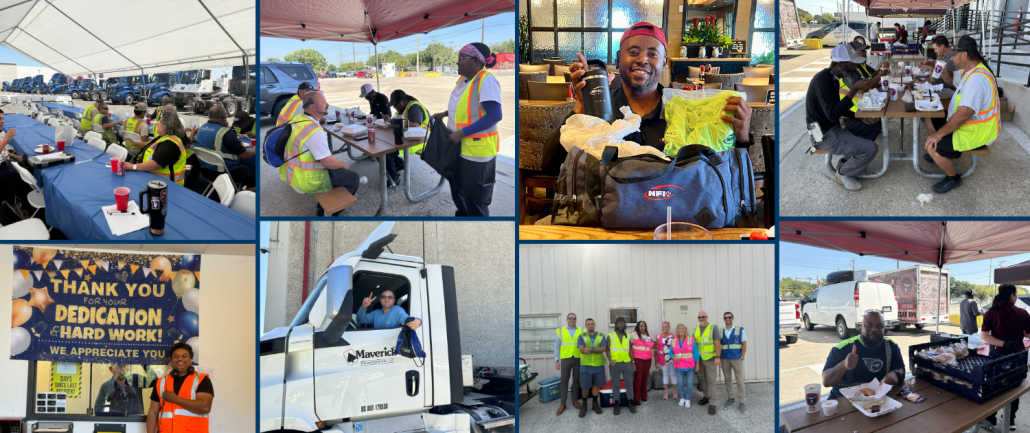 Searching for a new trucking job can feel like a full-time job itself. Between countless listings, company websites, and recruiters, it’s easy to feel overwhelmed or unsure where to begin.
Searching for a new trucking job can feel like a full-time job itself. Between countless listings, company websites, and recruiters, it’s easy to feel overwhelmed or unsure where to begin.
However, finding the right driving position doesn’t have to be complicated. With a clear strategy and the right resources, you can identify opportunities that match your experience, preferences, and long-term career goals.
This guide highlights some of the most trusted tools, websites, and recruiting networks to help you take control of your job search and make every application count.
1. Start with Specialized Job Boards
General job sites may post CDL openings, but they often lack the filtering tools and insights that truck drivers need. Instead, start your search on job boards designed specifically for professional drivers. These platforms understand the unique requirements of the industry, such as equipment type, route preference, and home time.
Drive My Way is a proven tool for drivers who want a more personalized approach to finding CDL jobs that fit their lifestyle and goals. Rather than just posting open positions, Drive My Way matches you with jobs based on your qualifications, experience, and lifestyle preferences, whether that means more home time, certain freight types, or specific benefits. You can register here to create your free profile and start receiving job matches that fit your needs.
Other CDL-specific job boards to check out include:
- CDLjobs.com: Offers listings from carriers across the country with filters for job type, route, and experience level.
- EveryTruckJob.com: Aggregates openings from major carriers and lets you apply directly through their platform.
- TruckDrivingJobs.com: Highlights regional and dedicated routes in addition to OTR positions.
When using these boards, be sure to set up alerts to receive notifications for new listings that fit your profile. This saves time and ensures you don’t miss opportunities that align with your career goals.
2. Explore Company Career Pages
If you already know which carriers interest you, visiting their official career pages can give you direct access to the most accurate and up-to-date job listings. Many large fleets post openings exclusively on their own websites before listing them elsewhere.
Browsing these pages allows you to learn more about a company’s pay structure, home time, safety programs, and benefits. You can also find insight into their training programs, sign-on bonuses, and driver recognition initiatives.
When reviewing company career pages, it helps to consider:
- Location and terminal proximity: How close are you to their main hubs or routes?
- Freight type: Does the company specialize in dry van, flatbed, tanker, or reefer freight?
- Career advancement: Does the carrier offer opportunities to move into trainer, dispatcher, or operations roles later on?
Creating a list of your top companies helps you stay organized and focused, especially if you’re comparing pay packages and benefits.
3. Connect with Recruiting Firms and Staffing Agencies
Recruiters can be an extremely valuable resource in your job search, especially if you’re open to different opportunities or have specialized experience. Reputable recruiting firms partner with multiple carriers to help drivers find roles that fit their skills and schedule preferences.
Some recruiting agencies focus on specific sectors, such as oil and gas hauling, food distribution, or LTL freight. Others help connect drivers with local or regional work, ideal for those seeking more consistent home time.
Before working with a recruiter, confirm that:
- They represent carriers with solid safety and compliance records.
- They never charge fees to drivers (legitimate recruiters are paid by carriers).
- They communicate clearly about pay, benefits, and expectations before you apply.
A trustworthy recruiter can help you save time, avoid mismatched jobs, and even negotiate better terms once an offer is made.
4. Use Social Media and Online Communities
Social media can be a surprisingly effective job search tool when used strategically. Many carriers post job openings, hiring events, and referral bonuses on platforms like Facebook, LinkedIn, and X (formerly Twitter).
Joining Facebook groups or online forums for CDL drivers can also provide valuable leads and peer advice. Drivers often share honest feedback about company culture, pay transparency, and equipment quality, which are all details you might not find in an official job description.
While these spaces can be useful, verify information before applying or sharing personal details. Stick to company-verified pages and legitimate job postings.
5. Tap into Networking and Word-of-Mouth
Sometimes the best opportunities come from conversations, not job boards. Networking with other drivers, dispatchers, or instructors from CDL school can lead to recommendations or insider information about upcoming openings.
Many fleets also have referral programs that reward current drivers for bringing in qualified candidates. If you’re looking to transition to a new company, asking around within your network may connect you to carriers actively hiring.
6. Keep Your Application Materials Ready
Once you’ve identified where to search, make sure you’re ready to apply quickly. Keep an updated version of your CDL, endorsements, work history, and medical certificate in digital form. Many job applications allow you to upload or enter this information online.
It’s also helpful to have:
- A clean, professional resume summarizing your driving experience and safety record.
- References from past employers or dispatchers.
- Your most recent driving MVR (Motor Vehicle Record).
Being prepared helps you respond quickly to promising leads before positions fill.
Wondering about other ways to stay ahead of the curve in the transportation industry in 2025? Be sure to check out more posts on our blog and connect with us on social media!

 Starting your career as a truck driver can be exciting and rewarding, but like any new profession, it comes with a learning curve.
Starting your career as a truck driver can be exciting and rewarding, but like any new profession, it comes with a learning curve.  When you spend most of your time behind the wheel, a good app can make the difference between a smooth trip and a stressful one.
When you spend most of your time behind the wheel, a good app can make the difference between a smooth trip and a stressful one.  For professional drivers, a truck cab is far more than just a workspace. It can be a living area, sleeping quarters, and storage room all at once.
For professional drivers, a truck cab is far more than just a workspace. It can be a living area, sleeping quarters, and storage room all at once. 

 Life on the road is demanding, and truck stops play a big role in making long hauls more comfortable.
Life on the road is demanding, and truck stops play a big role in making long hauls more comfortable.  Every September, National Truck Driver Appreciation Week gives us an opportunity to recognize the backbone of our economy: the truck drivers who log the long hours, navigate tough conditions, and deliver the goods that keep our lives moving.
Every September, National Truck Driver Appreciation Week gives us an opportunity to recognize the backbone of our economy: the truck drivers who log the long hours, navigate tough conditions, and deliver the goods that keep our lives moving. When disaster strikes, most people see first responders, such as firefighters, police officers, and paramedics, rushing into action.
When disaster strikes, most people see first responders, such as firefighters, police officers, and paramedics, rushing into action.  Refrigerated trucking, otherwise known as “
Refrigerated trucking, otherwise known as “
